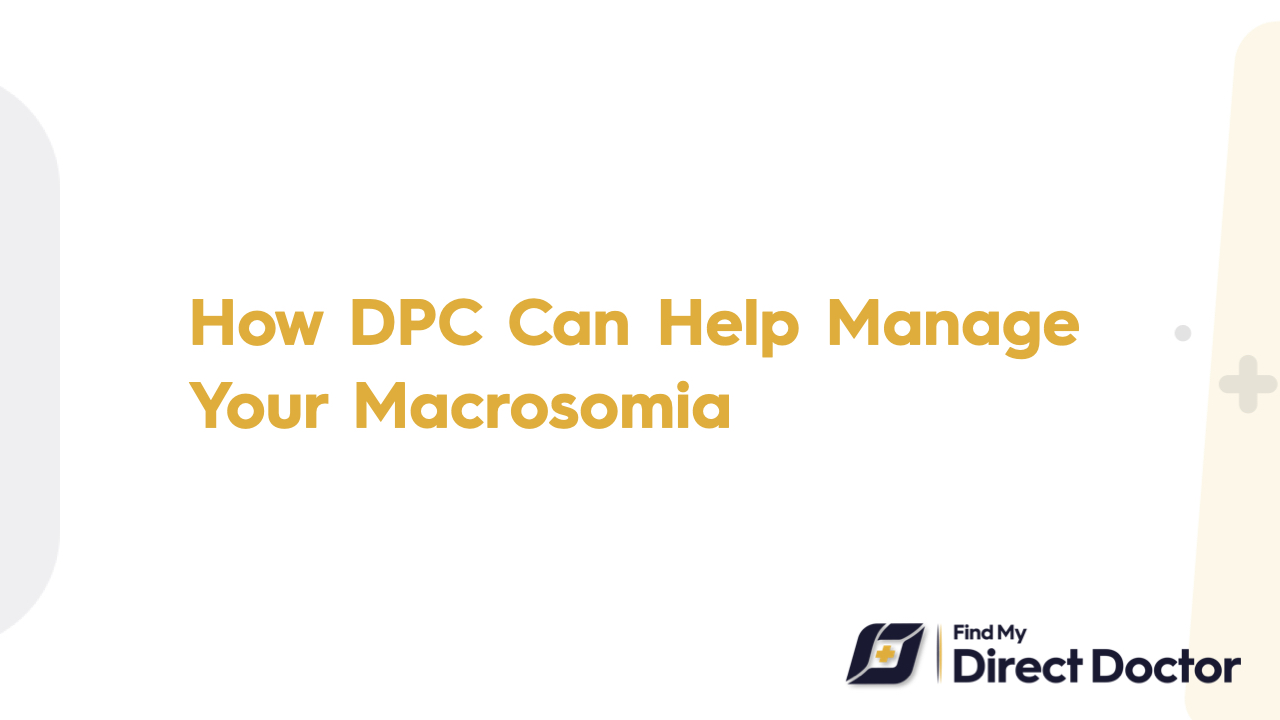



A disorder known as macrosomia occurs when a baby is born weighing an extremely high amount, usually more than 8 pounds 13 ounces (4,000 grams). Both full-term and preterm newborns may develop this disease. Obesity, gestational diabetes, or a family history of large newborns are frequently linked to it. In certain instances, maternal age or significant weight gain during pregnancy may also have an impact on macrosomia.

Regular ultrasounds that monitor the fetus's growth during pregnancy are frequently used to detect the symptoms of macrosomia. In certain instances, though, the problem might not be discovered until delivery. The baby's size can make delivery challenging, raise the risk of birth complications such shoulder dystocia, and increase the possibility of requiring a cesarean surgery, all of which are signs of macrosomia. Preeclampsia, gestational diabetes, and protracted labor are among the issues that a mother with macrosomia is more likely to experience.
When it comes to controlling macrosomia, Direct Primary treatment (DPC) may be quite helpful, particularly when it comes to making sure the mother and unborn child receive the right treatment during pregnancy. DPC makes it possible to evaluate the mother's health more frequently and individually, which is essential for controlling conditions like gestational diabetes or obesity that lead to macrosomia. Women who have DPC can take advantage of more frequent prenatal checkups, personalized dietary and exercise coaching, and tighter monitoring, all of which assist to treat problems early on.
Additionally, by providing ongoing support during pregnancy, DPC encourages a proactive approach to prenatal care. In a DPC setting, medical professionals can monitor fetal development closely and take appropriate action to lower the risks of macrosomia. In addition to offering guidance on controlling weight increase during pregnancy and routine testing for diseases like gestational diabetes, this also includes educating women about healthy lifestyle choices that can lessen the effects of macrosomia.
Receiving ongoing, individualized care throughout pregnancy is one of the main advantages of Direct Primary Care for individuals with macrosomia. DPC provides expectant mothers with regular and direct access to their medical professionals, assisting in the cautious management of all pregnancy-related issues, including those that may contribute to macrosomia. Early problem detection and better decision-making may result from this.
DPC assists in controlling postpartum recuperation in addition to offering individualized prenatal treatment. Mothers may experience additional difficulties after giving birth to a larger baby, such as recuperating from a cesarean section, controlling diabetes, or coping with physical trauma. Continuous care and assistance are made possible by DPC, which facilitates early problem solving and enhances overall healing. DPC providers also have more time to talk about health issues, offer lifestyle advice, and support mental health, all of which are critical to a mother's overall health both before and after pregnancy.
DPC's emphasis on personalized care makes treating macrosomia more unique for every patient. Pregnant women and DPC clinicians collaborate closely to create a customized plan that takes into account their unique health requirements, risk factors, and worries. In order to help limit excessive weight gain, this may involve tailored nutritional advice, targeted physical activity suggestions, and routine blood sugar testing for individuals with gestational diabetes.
Additionally, DPC clinicians are able to modify care as necessary during the pregnancy, guaranteeing that the mother and unborn child are constantly watched for any possible macrosomia hazards. This individualized approach enables medical professionals to take early action, such as modifying the birth plan, sending the mother to a specialist, or offering more assistance in the event of problems. In order to improve outcomes for both mother and child, DPC aims to develop a supportive, well-coordinated care plan that takes into account the particular difficulties presented by macrosomia.
Previous Post